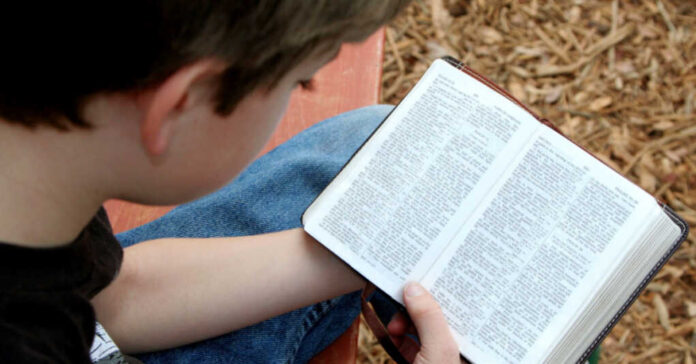
One of the best things about the United States is that we can worship and believe as we want. And yet, in schools all across our nation, it seems that right is being stripped away from our youth.
For example, the Bible, more specifically the King James Bible, was recently banned from all Davis School District elementary schools.
Why? Become a single parent, found out it was in a school library and didn’t like it. They complained to the school board that the book contained “violence and profanity” that was unacceptable for youth.
Within a matter of weeks, the Bible was banned.
According to the original request for the book’s removal, it contains at least 49 pages in which “inappropriate” things are mentioned or described, such as murder, sex, and even incest. Naturally, this didn’t sit too well with some board members or parents.
To be sure, the Bible is not exactly your typical children’s book. The first few books of the Old Testament can be particularly brutal sometimes. There is murder; there is war; there is sex; there is incest; there is polygamy. I mean, there’s a very good reason most children’s Bibles don’t include all the gory details.
It’s also a big part of why most children are taught Bible stories rather than given a King James and expected to read on their own. In this way, they are given the big picture of the stories, learning lessons on goodness, faith, purity, etc., without having to imagine the worst of it or what living those stories would actually be like.
But to ban the book because it has a few rough spots?
Thankfully, enough parents appealed the ban to make the board seriously reconsider and eventually cancel the ban entirely.
According to the committee’s decision, “Based on their assessment of community standards, the appeal committee determined that The Bible has significant, serious value for minors which outweigh the violent or vulgar content it contains.”
The big picture matters more, as does a child’s ability to access major religious and literary works.







